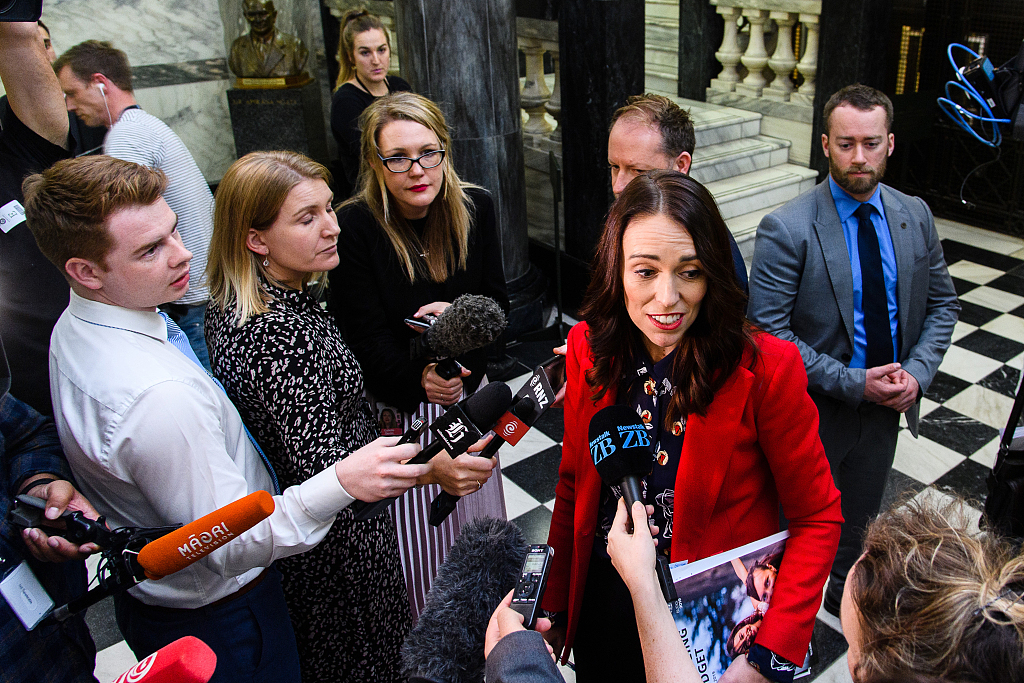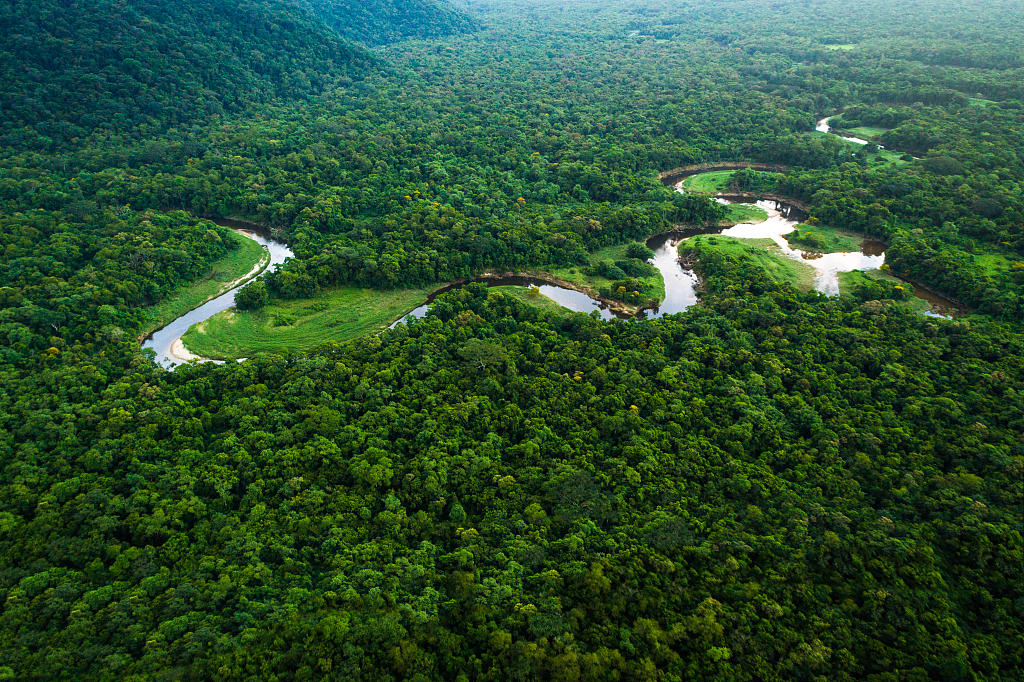A coalition of more than 11,000 scientists from 153 countries and territories, including China, have declared "clearly and unequivocally" that the earth is facing a climate emergency.
In the report titled "World scientists' warning of a climate emergency," released on November 5, the authors warned of "untold human suffering" if there are no deep and lasting shifts in human activities that contribute to greenhouse gas emissions.
The signatories laid out six steps that would lessen the worst effects of climate change, including creating a carbon-free economy and stabilizing the human population, eating mostly plant-based foods and reducing meat consumption, and protecting the earth's ecosystem.
Published in the Bioscience journal, and led by ecologists Bill Ripple and Christopher Wolf of Oregon State University, the report said climate change is accelerating faster than many scientists expected. "Despite 40 years of major global negotiations, we have continued to conduct business as usual and have failed to address this crisis," said Ripple.
The report also presented a comprehensive suite of climate change vital signs using only data sets that are systematically collected for at least five years, and updated at least annually. This provides policy makers with clear indicators and targets to reduce the effects of climate change, rather than only carbon emissions and surface temperature rises.
Rethinking economics and population growth
The authors called for a carbon-free economy and urged countries, especially wealthier ones, to curtail excessive exploitation of resources. "Our goals need to shift from GDP growth and the pursuit of affluence toward sustaining ecosystems and improving human well-being by prioritizing basic needs and reducing inequality."

Jacinda Ardern, New Zealand's prime minister, speaks to the media after the delivery of the budget at Parliament in Wellington, New Zealand, May 30, 2019. /VCG photo
Jacinda Ardern, New Zealand's prime minister, speaks to the media after the delivery of the budget at Parliament in Wellington, New Zealand, May 30, 2019. /VCG photo
New Zealand has already taken a step towards this, by unveiling the world's first well-being budget, which seeks to measure the country's growth in terms of well-being in five areas including mental health, supporting indigenous people and moving to a low-carbon-emission economy.
"We're embedding that notion of making decisions that aren't just about growth for growth's sake, but how are our people faring?" Prime Minister Jacinda Ardern said at the 2019 World Economic Forum in Davos. "How is their overall well-being and their mental health? How is our environment doing? These are the measures that will give us a true measure of our success.”
Besides a rethink of economic growth, the report also called for controlling population growth through policies that strengthen human rights while lowering fertility rates and lessening the impacts of population growth on greenhouse gas emissions and biodiversity loss. It added that this can have a spillover effect too in achieving gender equity.
Keeping carbon in the ground and reducing pollutants
Fossil fuels are the main culprit behind rising carbon emissions, and there is an urgent need to keep carbon in the ground, and for the world to shift towards renewable energy.
Renewables have seen positive growth in the past decade, with the International Energy Agency (IEA) saying that global supplies of renewable electricity are growing faster than expected and could expand by 50 percent in the next five years. It also forecast that China will lead the way in rolling out wind and solar energy projects.
Meanwhile, oil giants like ExxonMobil, BP and Shell are still investing billions of dollars in oil projects, despite saying that they are transitioning to cleaner energy. Think tank Carbon Tracker in a report this year said major oil companies have approved 50 billion U.S. dollars of projects since last year, signaling that more fossil fuels will be extracted.
"Every oil major is betting heavily against a 1.5-degree-Celsius world and investing in projects that are contrary to the Paris goals," said report co-author Andrew Grant.
In the meantime, the authors have called to promptly reduce the emissions of short-lived climate pollutants, including methane, black carbon, and hydrofluorocarbons. It said "doing this could slow climate feedback loops and potentially reduce the short-term warming trend by more than 50 percent over the next few decades."
Reforestation and food security
As the world's largest rain forest, the Amazon in Brazil is an important buffer against rising carbon dioxide levels, which are absorbed by vegetation as it grows. But after years of reduction in deforestation, fires swept through the Amazon in August, with the number of hotspots surging to the highest point since 2010.

The Amazon rain forest absorbs 2 billion tons of carbon dioxide per year, or 5 percent of annual emissions, making it a vital part of preventing climate change. /VCG Photo
The Amazon rain forest absorbs 2 billion tons of carbon dioxide per year, or 5 percent of annual emissions, making it a vital part of preventing climate change. /VCG Photo
Forests, coral reefs, wetlands, mangroves and sea grasses contribute substantially to the sequestration of atmospheric carbon dioxide. While animals and microorganisms play significant roles in carbon and nutrient cycling and storage. The report highlighted the need to protect and restore the earth's ecosystem in order to preserve the climate.
The study also called for a transition to eating mostly plant-based foods while reducing meat intake, especially ruminant livestock like beef, saying that it "can improve human health and significantly lower greenhouse gas emissions," especially methane. This will then help in freeing to support natural climate solutions and sustainable farming practices.
Ripple's report is the first time a group of scientists – in fields ranging from agriculture to biology – has formally come out to call climate change an "emergency", according to the Washington Post. And in its statement, the authors said: "Scientists have a moral obligation to clearly warn humanity of any catastrophic threat."
Scientists have spoken, and now it's time for policymakers to act.
(Cover: Protesters march during the "Fridays for Future" demonstration in Stockholm during a protest for climate action, September 20, 2019, part of a global climate action day. /VCG photo)